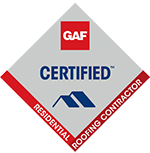When it comes to home improvement, few projects are as significant—and as daunting—as replacing or repairing your roof. A sturdy, well-maintained roof is crucial for protecting your home from the elements, enhancing energy efficiency, and increasing property value. Hiring the right roofing contractor is essential to ensure the project is completed efficiently, safely, and to high standards.

Here are the key questions you should ask when hiring a roofing contractor, along with the rationale behind each.
1. Are You Licensed and Insured?
Ensuring that your contractor is both licensed and insured is essential. A valid license demonstrates that the contractor is qualified to perform roofing work in your area and complies with local regulations. Insurance, on the other hand, protects you from liability in case of accidents, injuries, or property damage during the project. Contractors without proper insurance might leave you financially vulnerable if something goes wrong.
- License: Confirms the contractor is qualified and legally allowed to work in your area.
- Insurance: Protects you from liability for accidents, injuries, or property damage during the project.
- Risk Mitigation: Working with a licensed and insured contractor reduces your financial risk if something goes wrong.
2. Can You Provide References?
References offer direct insight into the contractor’s track record and work quality. A reputable contractor will gladly provide references from past clients who can speak to their experience. These references are invaluable as they provide firsthand accounts of the contractor’s reliability, punctuality, and craftsmanship. Contacting a few previous clients can help you gauge the contractor’s reputation and confirm that they deliver as promised.
- Track Record: Previous clients can share their experiences and the contractor's reliability.
- Quality Assurance: References provide insights into the quality and durability of the contractor’s work.
- Reputation Check: You can assess the contractor’s professionalism and dependability.
3. How Long Have You Been in Business?
Experience is a valuable asset in the roofing industry. A contractor with several years in business is more likely to have encountered a range of roofing challenges and developed effective solutions. Established contractors are often more reliable, as they have a proven history of successfully completed projects. Additionally, a contractor who has been around for a while is more likely to remain available for any future warranty or maintenance needs.
- Experience: Contractors with years in business are more likely to have tackled a variety of roofing challenges.
- Reliability: A well-established contractor is likely to be around for future needs, such as warranties or repairs.
- Business Stability: A long-standing business is generally more financially secure.
4. Do You Have a Physical Office or Showroom?
A physical office or showroom signifies a contractor’s commitment to their business and provides you with a point of contact beyond a phone number. This is helpful if you have questions or issues during or after the project. An office can also indicate a more professional and established company, which can give you peace of mind.
- Professionalism: A physical location indicates an established business.
- Accountability: Provides you with a reliable point of contact for questions or issues.
- Local Presence: Shows a commitment to the community and familiarity with local codes and standards.
5. What Roofing Materials Do You Recommend?
The type of roofing material you choose will affect the durability, appearance, and cost of your new roof. A knowledgeable contractor can recommend materials that suit your budget, aesthetic preferences, and the specific climate of your area. They should be able to discuss the pros and cons of various materials, such as asphalt shingles, metal roofing, or tile, helping you make an informed decision based on your needs.
- Material Knowledge: Helps you select materials suited to your climate and budget.
- Durability: Discusses options for materials that may last longer or provide better protection.
- Energy Efficiency: The right materials can contribute to energy savings.
6. Can You Provide a Detailed Written Estimate?
A written estimate is crucial for transparency. It allows you to understand the costs involved and can prevent unexpected expenses. Look for an estimate that itemizes labor, materials, and any additional fees. A clear estimate also serves as a reference throughout the project, helping ensure that the contractor sticks to the agreed-upon budget.
- Transparency: Breaks down costs so you can see where your money is going.
- Budget Planning: Helps you avoid unexpected expenses with a clear budget outline.
- Reference: Serves as a guide to ensure the project stays within the agreed terms.
7. Do You Offer Warranties or Guarantees?
Warranties provide peace of mind by covering materials and workmanship for a specific period. A good roofing contractor should offer a warranty that covers both the materials used and their work. Be sure to clarify the terms and conditions, including what actions could void the warranty and how long the coverage lasts.
- Peace of Mind: Warranties provide coverage for materials and workmanship over time.
- Investment Protection: Safeguards against potential issues that may arise after the project is complete.
- Clarity: Knowing the terms prevents misunderstandings about what is covered and for how long.
8. Who Will Be on-Site Managing the Project?
Having a designated on-site project manager ensures there is someone accountable for the work being done. This person acts as a direct line of communication, allowing you to ask questions, voice concerns, and receive updates. Knowing who will be overseeing the project can improve overall efficiency and keep the project on track.
- Communication: A designated manager provides a consistent point of contact.
- Accountability: Ensures there’s someone responsible for overseeing the work quality.
- Efficiency: On-site management can keep the project on track and handle unexpected issues promptly.
9. How Will You Handle Permits and Inspections?
Roofing work often requires permits and inspections to ensure compliance with local building codes. A professional contractor will handle these requirements on your behalf, which saves you time and reduces the risk of legal issues. They should be familiar with local regulations and able to navigate the necessary paperwork efficiently.
- Compliance: Ensures the project meets local building codes and regulations.
- Convenience: Saves you from having to deal with the paperwork and legal requirements.
- Peace of Mind: Shows that the contractor is thorough and legally compliant.
10. What Safety Measures Are in Place?
Roofing can be dangerous work. It’s essential to hire a contractor who prioritizes safety, both for their workers and your property. Ask about their safety protocols, equipment, and any certifications related to safety. This not only protects the workers but also minimizes risks to you as the homeowner.
- Worker Protection: Demonstrates a commitment to keeping workers safe on the job.
- Property Protection: Minimizes the risk of damage to your home or landscaping.
- Risk Reduction: Reduces the likelihood of accidents that could lead to liability issues.
11. Can You Explain the Roofing Process?
Understanding the roofing process helps you know what to expect, from the initial assessment to the final cleanup. A contractor should be able to walk you through each stage of the project, outlining tasks such as removing old roofing, repairing the underlayment, and installing new materials. This transparency can alleviate concerns and ensure that everyone is on the same page.
- Clear Expectations: Gives you a step-by-step overview of what to expect.
- Transparency: Outlines the timeline, from initial assessment to final inspection.
- Communication: Reduces misunderstandings by keeping you informed throughout the project.
12. What is the Estimated Timeline?
A clear timeline allows you to plan accordingly, especially if you need to make accommodations during the project. While delays can happen, a reputable contractor should provide an estimated start and end date. Regular updates can help manage your expectations and keep the project moving smoothly.
- Planning: Allows you to schedule around the work and prepare accordingly.
- Accountability: A timeline helps the contractor stay on schedule.
- Expectations: Helps prevent frustrations related to delays or extended project times.
13. How Will You Handle Unexpected Issues or Changes?
Roofing projects can uncover hidden issues, such as damaged structural elements or mold. Ask how the contractor will handle these surprises. Will they consult you before making changes? Understanding how they approach unexpected challenges will help you prepare for potential disruptions and additional costs.
- Problem-Solving: Shows that the contractor has a strategy for handling surprises.
- Budget Awareness: Clarifies how unexpected costs will be managed and communicated.
- Preparedness: Reduces stress by providing a plan for common roofing issues.
14. Do You Clean Up After the Project?
After a roofing project, there can be a significant amount of debris, including old shingles, nails, and scraps. Confirm that the contractor will take care of the cleanup and disposal. A thorough cleanup not only enhances your satisfaction but also prevents hazards for your family and pets.
- Debris Removal: Ensures that old roofing materials and waste are properly disposed of.
- Safety: Eliminates potential hazards like nails or sharp debris left behind.
- Satisfaction: Contributes to a clean, professional finish to the overall experience.
15. Are You Familiar with Local Climate Challenges?
A contractor who understands local climate conditions is better equipped to recommend materials and techniques suited to the area. For instance, roofing materials for a humid coastal area might differ from those suited to a dry, hot climate. Local knowledge can contribute to a more durable and resilient roof.
- Material Suitability: Ensures the contractor recommends materials suited to the local climate.
- Performance: Local experience means they understand how to maximize your roof's lifespan.
- Resilience: They’re better equipped to recommend materials that withstand local weather.
16. Do You Provide Emergency Repair Services?
In case of severe weather or other emergencies, it’s helpful to know if your contractor offers emergency repair services. Quick repairs can prevent minor damage from becoming a major issue, safeguarding your home until permanent repairs can be made.
- Responsiveness: Quick repairs can prevent minor issues from becoming major problems.
- Convenience: A contractor who offers emergency services can be invaluable after severe weather.
- Ongoing Support: Shows a commitment to helping you even beyond the main project.
17. Do You Have Certifications or Industry Affiliations?
Professional certifications and affiliations with industry organizations indicate a contractor’s commitment to quality and adherence to industry standards. These affiliations often require ongoing training and demonstrate a level of professionalism that can reassure you of their competence.
- Professionalism: Indicates the contractor’s commitment to upholding industry standards.
- Expertise: Certifications often require ongoing training, reflecting a knowledgeable contractor.
- Quality Assurance: Affiliations demonstrate a dedication to maintaining high standards.
18. Can You Provide a Written Contract?
A written contract is essential for legal protection, clearly outlining the scope of work, payment schedule, timeline, and warranty details. Ensure you receive a contract that both parties review and sign. This document provides a reference for all agreed-upon terms, reducing the likelihood of disputes.
Conclusion
Choosing the right roofing contractor requires due diligence, but asking the right questions can make the process smoother and provide valuable insight into the contractor’s reliability, expertise, and professionalism. By thoroughly vetting contractors, you can find a trustworthy partner who will deliver a high-quality roof that enhances the safety, durability, and value of your home for years to come.
Click Here to See Complete Guide
Subscribe to Roman Roofing's Blog




